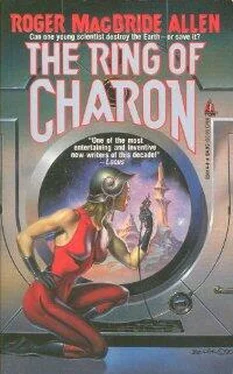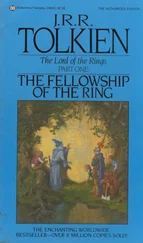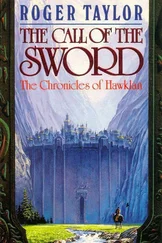Roger Allen - The Ring of Charon
Здесь есть возможность читать онлайн «Roger Allen - The Ring of Charon» весь текст электронной книги совершенно бесплатно (целиком полную версию без сокращений). В некоторых случаях можно слушать аудио, скачать через торрент в формате fb2 и присутствует краткое содержание. Год выпуска: 1990, ISBN: 1990, Издательство: Tor Books, Жанр: Фантастика и фэнтези, на английском языке. Описание произведения, (предисловие) а так же отзывы посетителей доступны на портале библиотеки ЛибКат.
- Название:The Ring of Charon
- Автор:
- Издательство:Tor Books
- Жанр:
- Год:1990
- ISBN:0-812-53014-4
- Рейтинг книги:5 / 5. Голосов: 1
-
Избранное:Добавить в избранное
- Отзывы:
-
Ваша оценка:
- 100
- 1
- 2
- 3
- 4
- 5
The Ring of Charon: краткое содержание, описание и аннотация
Предлагаем к чтению аннотацию, описание, краткое содержание или предисловие (зависит от того, что написал сам автор книги «The Ring of Charon»). Если вы не нашли необходимую информацию о книге — напишите в комментариях, мы постараемся отыскать её.
The Ring of Charon — читать онлайн бесплатно полную книгу (весь текст) целиком
Ниже представлен текст книги, разбитый по страницам. Система сохранения места последней прочитанной страницы, позволяет с удобством читать онлайн бесплатно книгу «The Ring of Charon», без необходимости каждый раз заново искать на чём Вы остановились. Поставьте закладку, и сможете в любой момент перейти на страницу, на которой закончили чтение.
Интервал:
Закладка:
She went into the corridor and walked the short distance. But the wardroom was empty. McGillicutty must have pulled everyone in to help observe the gravity experiment. No doubt she’d get drafted herself, sooner or later.
Finding herself alone, Marcia MacDougal made the best of it. She stepped over to the wardroom’s big observation port, and looked down at the planet’s glaring cloud tops.
She was a striking woman, seeming taller than she really was by virtue of her determined character. She had clear, flawless skin the color of dark mahogany, and her face was round and expressive. Her eyes were dark brown, bright and clear; eyes that seemed to see everything. But there was nothing at all to see out the observation window.
To the naked eye, dayside Venus was blindingly bright, a featureless wall of cloud. She could have fixed that: the observation windows could be controlled, the contrast, brightness, and spectrum manipulated. With the right settings, pattern and order appeared in the cloud tops.
But right now, to Marcia, a blank, staring, featureless globe seemed most appropriate. The light was so bright that nothing could be seen. So much information was coming in that nothing could be understood. The metaphors seemed apt to the era of the Knowledge Crash. And VISOR seemed likely to be the next Crash victim.
Venus Initial Station for Operational Research— VISOR—had been meant to be the stuff that dreams were made of. The headquarters for the creation of a brave new world—a new Venus, cooled, watered, made new with life.
No one knew exactly how it was to be done, how a world would be brought to life. That was what VISOR was for—to find the answers. There had been some wild ideas: VISOR dropping huge probes and seeder ships onto the planet, manhandling ice-bearing asteroids and monstrous atmosphere skimmers into place. Huge sunshades orbiting the planet, floating chemical factories built under enormous dirigibles and set loose in the upper atmosphere.
Some of the more wild-eyed miners in the Asteroid Belt had their own ideas. They had quite seriously offered to blow up the planet Mercury with a fearsome device named the Core Cracker. With a second asteroid belt close to Sun, they would really get some use out of solar power. Venus didn’t really have much to do with the idea, but the Belt Community crowd had tried to sell its plans to VISOR, pointing out the Mercury Belt would be an ideal place to build those massive sunshades or rotation-enhancement impact bodies.
There were other schemes, not quite so mad, and VISOR would have tried some or all of them. At the present time, of course, no one had the faintest idea how to do any of those things. And that was the whole point. VISOR was built to last for centuries, built to grow, change, evolve. The station designers expected that it would have to handle technologies whose inventors were not yet born.
VISOR. The last two words in the acronym were the key. Operational Research . Before Venus could be remade, the scientists and engineers had to learn how the task could be done. A lot could be resolved with computer models and small-scale simulations, but when dealing with a massive planetary environment, those techniques simply weren’t enough. The engineers and scientists needed a whole planet to play with, a whole planet to make mistakes on. Terraforming required on-the-job training.
Couldn’t the United Nations see that? Couldn’t they see how vital the station was? How disastrous a shutdown, or even a temporary mothballing, would be? Venus was a task for decades, generations. It could not be done in fits and starts.
Suddenly the intercom hooted at her. A high-pitched slightly peevish voice that Marcia had learned to dread spoke. “MacDougal! Get on up to Main Control!” McGillicutty’s voice said. “I need you to monitor some low-end radio for me.”
Marcia shut her eyes and counted to ten before turning away from the window and heading up to the lab. She was willing to bet that even her husband’s patience would be worn thin by Hiram McGillicutty. She’d have to try the experiment, once Gerald got here.
Hiram McGillicutty was the staff physicist of the Venus Initial Station for Operational Research. Most days, that job made Mcgillicutty as useful as a parachute on a fish.
No one disputed that VISOR needed a physicist, but only in the sense that a small town needed a fire department. You had to have one around, just in case something unexpected happened.
McGillicutty did not think much of his colleagues on the station. Mere engineers. Give them the numbers to plug into the equations, and they were perfectly happy. Never mind what the numbers meant, or how they were derived. Ninety-nine times out of a hundred, they not only would not need to know how the numbers came to be there, they would positively resent your wasting their time with such petty details.
Hiram McGillicutty imagined himself as accepting his lot philosophically—though no one else on the station would ever describe his attitude in such terms. Most of them would come up with arrogant , or self-absorbed .
But today was different. Today this was his station, thanks to those bad boys on Pluto. McGillicutty chuckled under his breath, shook his shaggy head, and bared his snaggled teeth in a rueful grin. He had seen the prelim data from Ganymede and Titan. What a stunt the gravity boys were pulling!
He checked the sequencer clock and worked out the speed-of-light delay. According to the experiment plan Pluto had transmitted, the gravity beam should have started targeting Venus just over five and a half hours ago. So if the experiment was indeed running on schedule, the gravity beam should be arriving any—
“Jesus jumping Christ willya lookit that!” he cried. Hiram McGillicutty was of an excitable sort, but for once he would seem to be entitled. The gravity-wave meter, a piece of incredibly delicate hardware that had rarely given off so much as a quiver, was now spiking high, slamming into the high end of the scale. McGillicutty adjusted the graphic display scale by a factor of a hundred.
Marcia MacDougal shook her head in wonderment. It was real. After hundreds of years as a minor curiosity— a sideshow in the world of high-energy physics—gravitic research was suddenly coming alive, right before her very eyes.
“It’s a gravity beam,” someone said. “Shouldn’t we feel heavier, or lighter, or something? I don’t feel a thing.”
“How powerful is that beam?” one of the biologists asked, a bit nervously. “It’s not going to start pulling us toward Pluto, is it?”
“It doesn’t work that way,” McGillicutty explained testily. “What they’ve managed to do—somehow, God only knows how—is use a phase relation to make half the wave repulse instead of attract. The effect cancels itself out overall. And the beam is damn weak before it gets here.”
McGillicutty licked his lips greedily. “ God I’d love to know how they do it. But if they’ve figured out how to manipulate gravity fields that well, they can’t be more than a few steps from true gravity control—if they could fiddle the harmonics somehow and establish a standing wave front—they could create whatever gravity field they wanted.”
“That’s the sort of little ‘if’ that takes another hundred years to crack,” Marcia said. “I’d bet gravity waves are just a parlor trick for a long, long time.”
“Maybe,” McGillicutty said. “But as parlor tricks go, this is a pretty major one. Gravity waves ought to provide a whole new way of looking at the Universe. Matter should be practically transparent to gee waves! Tune the waves right, and we ought to be able to use them to see right through the Sun and the planets, look down into them as deep as we want. Put a gee-wave sender on one side of Venus, and a detector on the other, and we’d be able to examine its internal structure in real time. Like radar. There are big times ahead. Big times.”
Читать дальшеИнтервал:
Закладка:
Похожие книги на «The Ring of Charon»
Представляем Вашему вниманию похожие книги на «The Ring of Charon» списком для выбора. Мы отобрали схожую по названию и смыслу литературу в надежде предоставить читателям больше вариантов отыскать новые, интересные, ещё непрочитанные произведения.
Обсуждение, отзывы о книге «The Ring of Charon» и просто собственные мнения читателей. Оставьте ваши комментарии, напишите, что Вы думаете о произведении, его смысле или главных героях. Укажите что конкретно понравилось, а что нет, и почему Вы так считаете.












